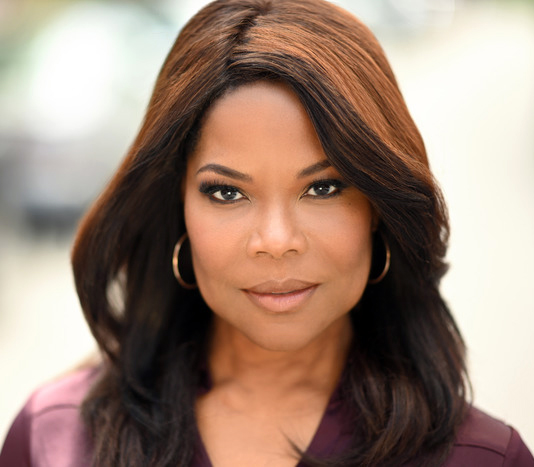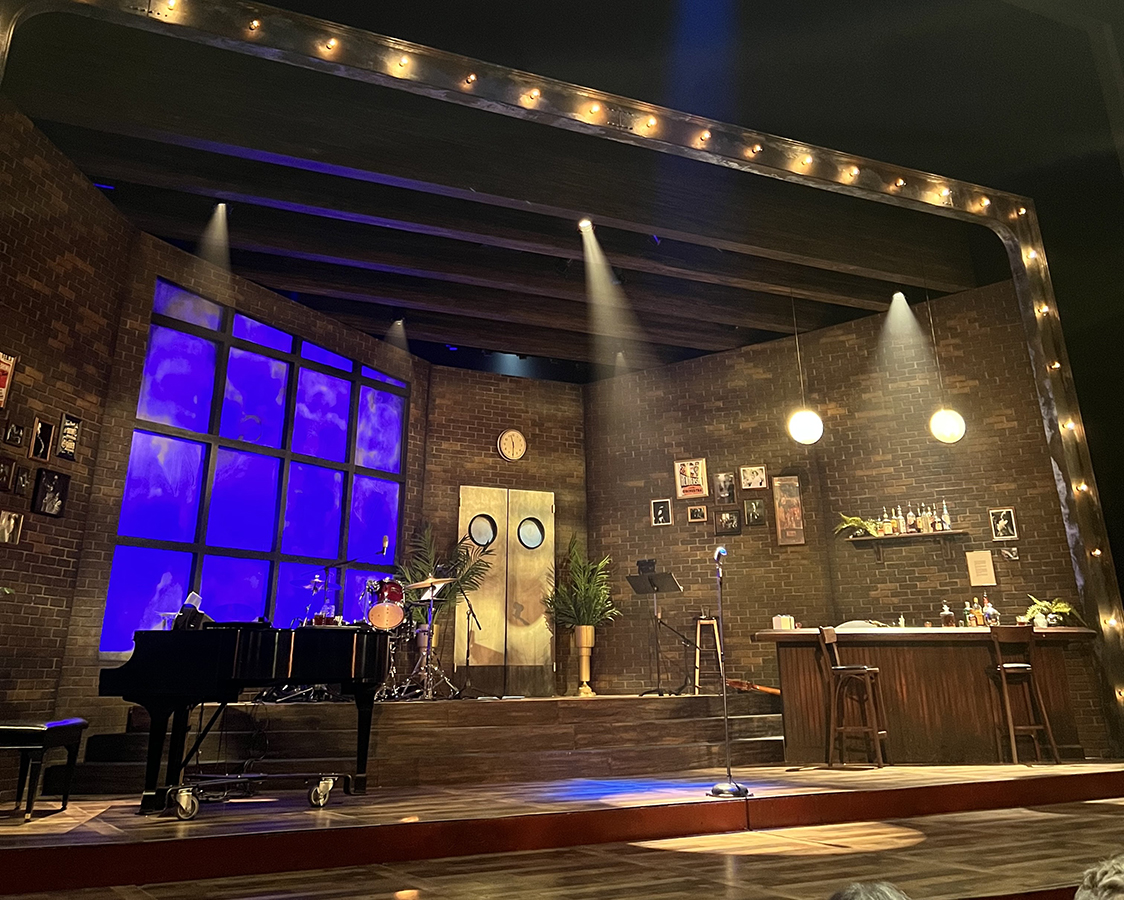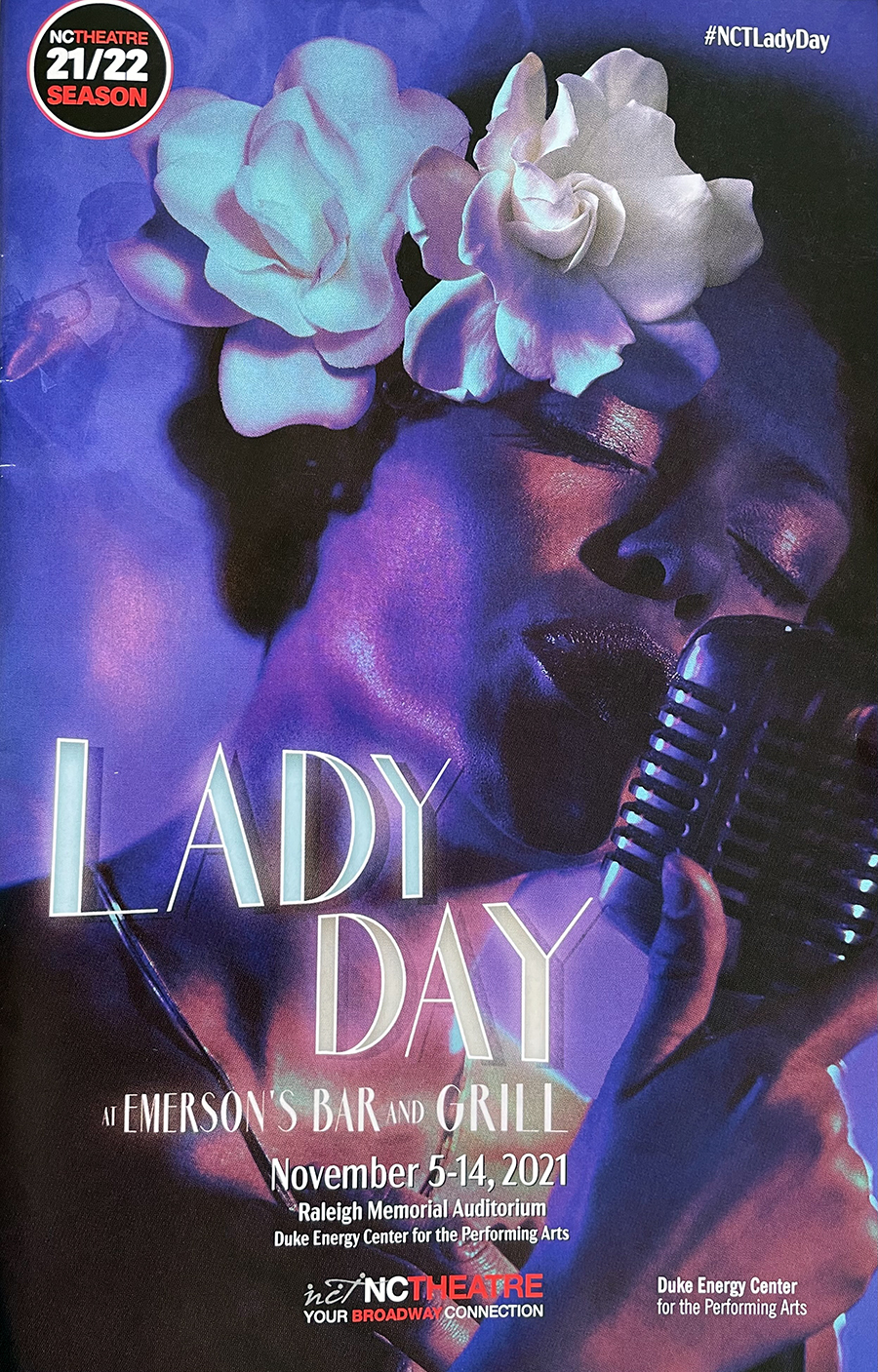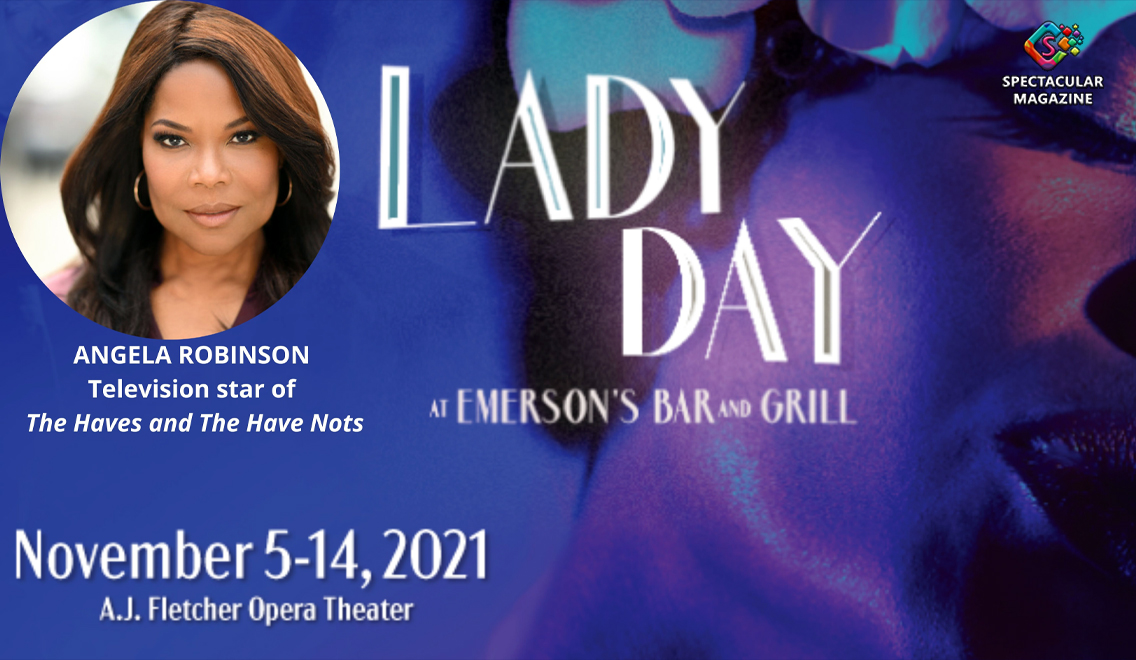(Review) “Lady Day at Emerson’s Bar and Grill”: Robinson Masterfully Bestrides Humor, Pain
RALEIGH – North Carolina Theatre‘s production of Lady Day at Emerson’s Bar and Grill opened at Raleigh’s Duke Energy Center for the Performing Arts (DECPA) last night (Nov. 5). Essentially a one-woman show, Lady Day offers an unflinching, uncensored glimpse at the life of dear departed American songstress Billie Holiday.

Angela Robinson delivers a tortured performance as the iconic artist. Robinson is best known for her role as the deliciously evil Veronica Harrington on Tyler Perry’s The Haves and the Have Nots. But in Lady Day, the ice queen is out to melt your heart.
The fact that Lady Day can captivate an audience for 90 minutes – with no intermissions, no set changes – is a testament to Robinson’s talent and the story’s potency.
It is evident that much care was taken with this project. Not just with Holiday’s legacy, but with the entire production. The cabaret-style presentation unfolds through a fine haze of (herbal) cigarette smoke – as if you’re in an actual late 50s dive bar. Romello Huin’s scenic design looked a little too polished, but that’s a minor point. Additionally, there’s even a bar goer in the crowd who engages in some folksy repartee with Billie. It’s great fun – notwithstanding the underlying dark subject matter.
Holiday’s antics become less and less funny as the show creeps on – but this is presumably intentional. The humor of Lady Day is but thinly-veiled pain, and Robinson masterfully bestrides the two themes.
Robinson may not have captured Holiday’s quintessence the way Audra McDonald did on Broadway, but that did not make the performance any less impactful. Robinson herself is no stranger to the stage: she has breathed life into such award-winning pieces as The Color Purple and Dreamgirls.

Kishara McKnight’s costumery is simple yet elegant. Holiday’s bridal-esque ensemble, in keeping with 1986 costumier Muriel Stockdale’s vision, is perhaps emblematic of a dream deferred. Holiday was shut out of the postwar cult of domesticity, of “true” womanhood. She was shut out of the American dream, out of the traditional family, out of homeownership. And oh, how she ached for motherhood. How she ached to have children of her own. Robinson conveyed this yearning in tear-jerking form.
Robinson can riff with the best of them. Around halfway through the performance, an audience member’s mobile chimed. Without skipping a beat, Robinson (as Holiday) snapped, “Answer ya damn phone.”
Holiday’s pooch, Pepi, is sure to delight even the surliest theatergoer. The Maltese/Shih Tzu mix adds a touch of playfulness to an otherwise foreboding state of affairs.
A deindustrializing 1959 Philadelphia is an apt setting for the play. Lady Day exhibits the decay of a once-proud woman, as the once-proud city decays around her. The Declaration of Independence was signed just a few blocks east of Emerson’s Bar. Lady Day laughs in the face of America and her false promises. What began as America’s promise became America’s failure. Holiday’s plight is proof of that failure. In myriad ways, America failed Billie Holiday and millions like her. A bitter irony it is, a Black woman wasting away in the so-called birthplace of a nation.
White men and Black men alike victimized Billie Holiday. Therein lies the “double whammy” Black women face – racism and sexism. It was truly these ills, not alcohol, that killed Billie Holiday. It was the rape, the abuse, the criminalization, the poverty. There is a moment where Billie dwells on her lifelong subjection to the terrors of Jim Crow. She quickly puffs a cigarette and drowns her unpleasant memories with scotch. These few seconds lay bare the link between trauma and substance use.
The government’s persecution of Holiday eerily foreshadows a latent War on Drugs and FBI Counter Intelligence Program (COINTELPRO). The Department of Justice stalked Billie Holiday like an animal. She died handcuffed to her hospital bed.
Jarvis Green, fresh off his all-Black staging of Next to Normal, directs the Raleigh production. Green’s direction and Lanie Robertson’s script expertly weave together the Holiday repertoire.
The show ends hauntingly. The actress stops moving her mouth, but the voice of Billie Holiday continues to fill the hall. It is an ethereal sight to behold. Holiday’s mortal body may be long gone, but her voice and spirit will live on for generations.
 Lady Day conjures apparitions of Judy Garland, Marilyn Monroe, Dorothy Dandridge, Whitney Houston, and other stars snuffed out too soon; young women poisoned by fame, drugs, and men. In a brief post-show interview, director Jarvis Green placed emphasis on that latter toxin: men. Green intends Lady Day to be “a commentary on women in art.” He encourages readers to see the show, “If you’re really interested in seeing a really interesting piece about a cultural icon.” An interesting piece it was indeed. Bravo.
Lady Day conjures apparitions of Judy Garland, Marilyn Monroe, Dorothy Dandridge, Whitney Houston, and other stars snuffed out too soon; young women poisoned by fame, drugs, and men. In a brief post-show interview, director Jarvis Green placed emphasis on that latter toxin: men. Green intends Lady Day to be “a commentary on women in art.” He encourages readers to see the show, “If you’re really interested in seeing a really interesting piece about a cultural icon.” An interesting piece it was indeed. Bravo.
Lady Day will be playing at DECPA until Nov. 14. Get your tickets here. Please be mindful of COVID-related precautions.
Access the digital playbill here (just scroll through the initial 15 pages of advertisements). For the history aficionados among you, here is the playbill from the original 1986 production.


